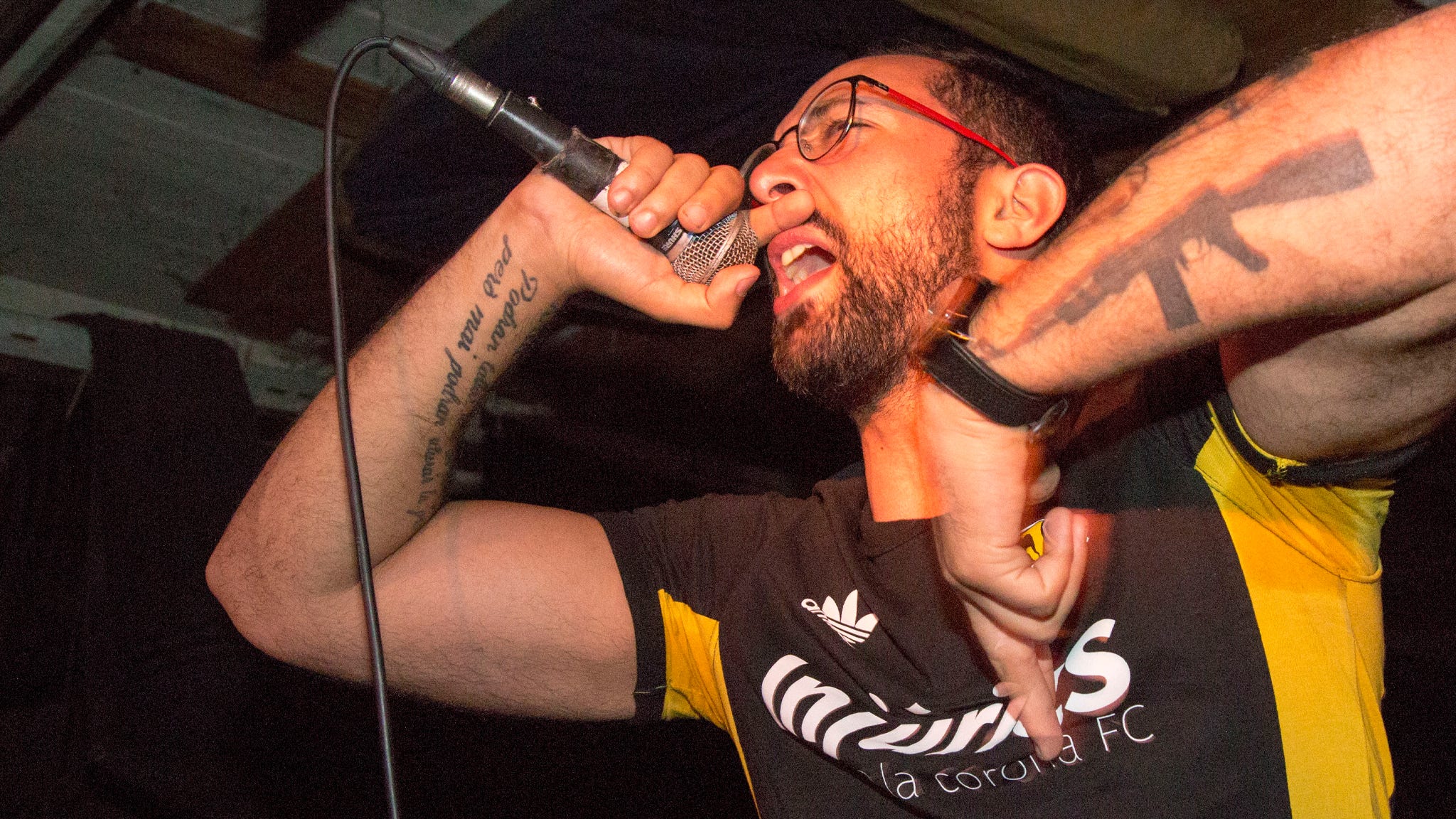Rapper on the Run
When Spanish authorities sentenced this provocative musician to prison for “glorifying terrorism,” his dedicated fans helped him make a daring escape across the border.

Photos by Delmi Alvarez | Edited by Shawna Kenney
Josep Miquel Arenas Beltrán is behind the wheel, driving too fast. He’s coming back from dinner with friends in downtown Brussels, where he ordered a double cheeseburger with fries and showed off the AK-47 tattoo on his left forearm. The tattoo was sort of dumb, he admits. He was 18 when he got it, but he doesn’t regret it. The car’s sound system blasts a song that Josep’s friend Marc, a.k.a Poor Tràmit, who’s squeezed in the back with another friend, recorded in his living room this afternoon. “Turned out really cool,” Josep tells Marc, who grins.
Suddenly Josep brakes and the car lurches forward. Standing outside his apartment building is a stocky man wearing black military-style boots.
“Joder,” Josep mutters, cursing in Spanish. He stalls the car for a moment, then speeds away.
“Tío, do you see his boots?” says one of his friends.
“That’s got to be the police.”
Josep suspects the man might be Spanish secret service, though he doesn’t know…
Keep reading with a 7-day free trial
Subscribe to Narratively to keep reading this post and get 7 days of free access to the full post archives.



